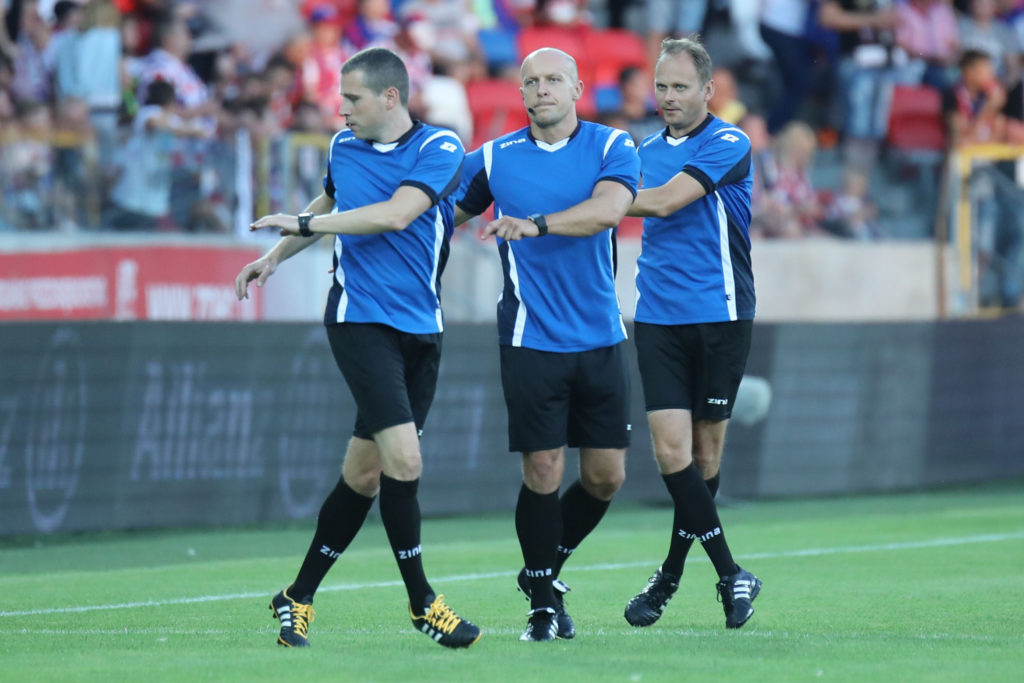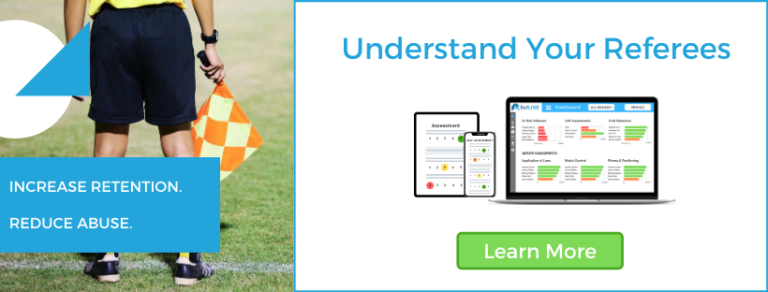- Are you someone who will persevere in the face of adversity?
- Are you able to remain mentally strong following an error?
- Whilst in the middle, do you break down the barriers which come your way?
We all aspire to be the type of referee who is always looking to the next decision, even after making an error. We want to carry with us a brand of resilience, where we officiate with absolutely no fear.
If we make a mistake we park it and move to the next incident which requires us to make a decision.
If we incorrectly fail to identify foul play, we think about the positions we’re assuming and are positive in our movement to make sure we give ourselves the best vantage point to make judgments from the next time around.
As referees, we are human, therefore mistakes are inevitable. The quicker we make peace with this fact, the more successful we can be.
I recently spoke to a high profile volleyball player about their experiences of needing to be mentally tough and resilient in the face of having made a number of errors during games. This is what I was told:
“I specifically remember a college game where we were playing a team of trees. The right sides and middles were giants, excellent blockers; and both of whom would be blocking me while attacking. As an outside, I was an outlet. All outsides are, and because of this, they usually have the most attack attempts. Early in this particular match I got blocked two times in a row. Not blocks we could have recovered. Flat out, in your face blocks. I could have easily gotten rattled and told my setter not to set me. As we were communicating our sets with hand signals before the next serve receive, I called for a shoot (a quick ball outside). My setter looked surprised. We were stacked to the left side of the court, in close proximity of each other. I looked at her with an intense expression and said, “Set me.” Even though I was blocked on my previous two attacks, my setter pushed me a quick set outside (which most setters wouldn’t have done). I split the block for a 10-foot-line kill. I thanked my setter for the awesome push and for trusting me with another ball after two mistakes.”
As we can see, Volleyball players, like players and officials of other sports, require a certain level of toughness to do their jobs.
We know, as referees, that mistakes happen all the time, and that your ability to continue and remain resilient determines the standard to which you are able to officiate the game.
How resilient you are depends upon your mindset. Ask yourself these questions:
- Can I compartmentalise errors?
- Do I come across as a confident referee? Do I trust my management skills?
- Do I remain focused on officiating the game?
- Am I composed out in the middle?
If you can say yes to these mental skills, you’re a Resilient Referee. You continue to officiate the game to the best of your ability no matter what kind of challenges you come up against.
If your answer was no, then you should look to start building your mental skills and in turn, your mental toughness. When you’re goal setting, in order to improve your refereeing ability, consider those questions above so that you can turn those no’s into yeses. Break it down into tackling each question at a time, trust in your management skills, and have total confidence out on the pitch.
At The Third Team I work individually and in collaboration with different professionals where I have developed workshops associated with Resilience and Mental Toughness Development to help referees. The workshops are interactive, where referees are encouraged to open up and share their experiences to help each other.
Feel free to contact me if you’d like to know more about my workshops and how I could help you or your officials.
Best Wishes,

Nathan Sherratt
Referee Educator & Managing Director of The Third Team

Nathan Sherratt
Nathan Sherratt, Referee Educator, Resilience Trainer and Managing Director of The Third Team. A Mental Toughness Practitioner based in County Durham, North East England.


